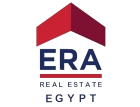Unlocking the Secrets of Real Estate Values: The Key to Understanding Commercial Property Assessments and Valuation Models in Egypt
Are you looking to crack the code on commercial property assessments and valuation models in Egypt? Look no further, as we delve into the secrets of real estate values in this informative article. Understanding the complex world of real estate assessments can be daunting, especially when it comes to commercial properties. However, with the right knowledge and strategies in place, you can gain a clear understanding of how these assessments are determined and the factors that affect property valuations.
In this article, we will explore the key components of commercial property assessments and valuation models in Egypt. From the various methods used to calculate property values to the factors that drive these assessments, we will uncover the secrets that unlock the true worth of a commercial property. Whether you are a real estate investor, developer, or simply curious about the industry, this article will provide valuable insights that can help you navigate the world of commercial property assessments and make informed decisions. So, join us as we demystify the process and equip you with the knowledge to understand and capitalize on real estate values in Egypt.

Understanding the Importance of Accurate Property Valuations
Accurate property valuations are fundamental in the realm of commercial real estate, serving as the bedrock for informed investment decisions. Without precise assessments, investors risk overpaying for properties, which can lead to significant financial losses. Valuations provide a comprehensive picture of a property’s worth, taking into account various factors such as location, market demand, and the condition of the property. For investors in Egypt, where the real estate market is rapidly evolving, understanding the nuances of property valuations becomes even more critical.
Moreover, accurate valuations are essential for securing financing. Banks and financial institutions rely on property assessments to determine the loan amount they are willing to extend to a borrower. If the valuation is inflated or deflated, it can lead to complications in securing the necessary funds for investment or development. In Egypt’s competitive market, having a reliable valuation can be the difference between a successful transaction and a missed opportunity. Thus, both investors and lenders must prioritize accurate property assessments to ensure a healthy real estate market.
In addition, accurate property valuations play a vital role in taxation and regulatory compliance. Government entities often assess property values for taxation purposes, and discrepancies can lead to disputes or financial penalties. For businesses operating in Egypt, understanding how valuations are conducted and the implications for tax liabilities is crucial. Staying informed about the assessment process and its impact on property values can help stakeholders navigate the complexities of the legal landscape and avoid unnecessary challenges.
Factors That Influence Commercial Property Values in Egypt

Several factors influence commercial property values in Egypt, creating a dynamic landscape for real estate investors and professionals. One of the primary determinants is location. Properties situated in prime areas, such as business districts or near major transportation hubs, tend to command higher prices due to increased demand. As urbanization continues to shape the Egyptian landscape, understanding the significance of location becomes paramount for anyone looking to invest in commercial real estate.
Another critical factor is the condition and age of the property. Well-maintained, modern buildings often attract higher valuations compared to older structures that may require significant renovations. Investors need to consider the long-term maintenance and improvement costs associated with a property, as these can significantly impact overall value. Additionally, the layout and functionality of commercial spaces can affect their desirability among tenants, further influencing valuation.
Market trends also play a crucial role in shaping property values. Economic conditions, such as inflation rates, interest rates, and overall market sentiment, can lead to fluctuations in demand and supply. In Egypt, where the real estate market is influenced by both local and global economic factors, staying attuned to market trends is essential for accurate property valuation. Investors should keep an eye on emerging sectors, such as technology and tourism, as these can provide insights into future property values and investment opportunities.
Different Methods of Property Valuation in the Egyptian Real Estate Market
When it comes to property valuation in Egypt, several methods are employed to ascertain the worth of commercial properties. The most common approaches include the sales comparison approach, the income approach, and the cost approach. Each method has its unique advantages and is suited to different types of properties and market conditions. Understanding these methodologies is essential for stakeholders looking to make informed decisions in the commercial real estate market.
The sales comparison approach involves analyzing recent sales data of similar properties in the area to determine a property’s value. This method is particularly useful in active markets where comparable sales data is readily available. By examining factors such as size, location, and condition, investors can arrive at a reasonable estimate of a property’s worth. However, this approach may not be as effective in markets with limited comparable sales or unique properties that lack direct comparisons.
The income approach, on the other hand, focuses on the potential income a property can generate. This method is particularly relevant for investment properties, as it considers factors such as rental income, operating expenses, and market capitalization rates. By calculating the net operating income and applying an appropriate capitalization rate, investors can derive a value that reflects the property’s income-generating potential. This approach is crucial for those looking to assess the viability of an investment from a cash flow perspective.

The Role of Market Analysis in Property Valuation
Market analysis plays a pivotal role in property valuation, providing essential insights that influence the assessment process. By examining current market trends, demographics, and economic indicators, stakeholders can gain a deeper understanding of the real estate landscape. In Egypt, where the market is constantly changing, conducting thorough market analysis is crucial for accurate property valuations.
One key aspect of market analysis is understanding supply and demand dynamics. By analyzing the availability of commercial properties in a given area and the level of demand from potential tenants or buyers, investors can gauge how these factors impact property values. For instance, if there is a surplus of office spaces in a particular district, prices may decline, while a shortage could lead to increased valuations. This information is vital for investors looking to time their purchases or lease agreements effectively.
Additionally, market analysis helps identify emerging trends and opportunities within the real estate sector. By staying informed about shifts in consumer preferences, such as a growing demand for eco-friendly buildings or mixed-use developments, investors can position themselves advantageously in the market. Understanding these trends allows stakeholders to make proactive decisions, ensuring that their investments align with market demands and maximizing potential returns.
Key Terms and Concepts Related to Commercial Property Assessments
To navigate the complex world of commercial property assessments effectively, it is essential to familiarize oneself with key terms and concepts that underpin the valuation process. Understanding these terms can enhance communication among stakeholders and enable informed decision-making in the real estate market.
One fundamental term is “appraisal,” which refers to the process of determining the value of a property by a qualified professional, often an appraiser. Appraisals are typically conducted using recognized methodologies and consider various factors, including comparable sales, income potential, and overall market conditions. Investors should ensure that appraisals are conducted by licensed professionals to ensure accuracy and credibility in the assessment process.
Another important concept is “highest and best use,” which refers to the most profitable and legally permissible use of a property. This concept is crucial in property valuation, as it can significantly influence the assessed value. For example, a vacant lot may have a higher value if it can be developed into a commercial space rather than remaining undeveloped. Investors should carefully evaluate the highest and best use of a property to maximize its potential value and align with market demands.
Lastly, understanding “capitalization rate” is essential for those utilizing the income approach in property valuation. The capitalization rate reflects the expected return on investment for a property and is calculated by dividing the net operating income by the property’s value. This rate is a critical factor in determining the value of income-generating properties and helps investors assess the potential profitability of their investments.

Common Challenges and Limitations in Property Valuation in Egypt
Despite the various methods and approaches used in property valuation, challenges and limitations persist, particularly in the Egyptian real estate market. One of the primary challenges is the lack of reliable and comprehensive data. Accurate valuations depend on access to up-to-date information regarding comparable sales, rental rates, and market trends. In Egypt, where data may be scarce or inconsistent, appraisers and investors can face difficulties in conducting thorough analyses.
Additionally, the dynamic nature of the real estate market can lead to fluctuations that complicate the valuation process. Economic conditions, political stability, and changes in regulations can all impact property values. Investors must be vigilant and adaptable, as sudden shifts in the market can render previous valuations obsolete. Staying informed about both local and global economic factors is crucial for navigating these challenges effectively.
Another limitation in property valuation is the subjectivity involved in the assessment process. Different appraisers may arrive at varying valuations based on their methodologies, assumptions, and interpretations of market conditions. This subjectivity can lead to discrepancies in property values, making it essential for investors to seek multiple opinions and conduct their due diligence. Engaging with experienced professionals and utilizing a combination of valuation methods can help mitigate these challenges and provide a more accurate assessment of a property’s worth.
The Impact of Technology on Property Valuation Practices
Technology has significantly transformed property valuation practices, introducing innovative tools and methodologies that enhance the accuracy and efficiency of assessments. In Egypt, as in many other countries, technology is playing an increasingly vital role in the real estate sector, offering solutions that streamline the valuation process.
One notable advancement is the use of data analytics and artificial intelligence in property assessments. By leveraging large datasets and sophisticated algorithms, appraisers can analyze market trends, property characteristics, and comparable sales more efficiently. This data-driven approach enables more accurate valuations and reduces the time required for assessments. As technology continues to evolve, stakeholders in the Egyptian real estate market can benefit from enhanced insights and improved decision-making capabilities.
Moreover, virtual reality and 3D modeling technologies are revolutionizing how properties are presented and evaluated. Investors can now conduct virtual tours of commercial properties, allowing them to assess the layout and condition without being physically present. This capability is particularly beneficial in a rapidly growing market like Egypt, where investors may be exploring opportunities from a distance. By utilizing these technologies, stakeholders can gain a more comprehensive understanding of properties before making investment decisions.
Finally, online platforms and mobile applications have democratized access to property information, allowing investors to conduct research and analysis more easily. These tools provide users with valuable insights into market trends, property listings, and valuation data at their fingertips. As the Egyptian real estate market continues to embrace technology, staying informed about these advancements will be crucial for investors seeking to navigate the complexities of property valuation.
Tips for Navigating the Commercial Property Valuation Process in Egypt

Navigating the commercial property valuation process in Egypt requires a strategic approach and a thorough understanding of the market. Here are some essential tips for investors and stakeholders to consider when assessing commercial properties.
First and foremost, it is vital to conduct comprehensive research before initiating the valuation process. Familiarize yourself with the local market, including recent sales data, rental rates, and prevailing economic conditions. By understanding the nuances of the market, you will be better equipped to assess the factors that influence property values. Engaging with local real estate professionals and utilizing online resources can provide valuable insights into current trends and opportunities.
Additionally, consider employing multiple valuation methods to arrive at a well-rounded assessment of a property’s worth. Relying solely on one approach may lead to inaccurate valuations, especially in a diverse market like Egypt. By utilizing a combination of the sales comparison, income, and cost approaches, you can triangulate the property’s value and gain a clearer understanding of its potential. Collaborating with experienced appraisers who are familiar with the Egyptian market can also enhance the accuracy of your assessments.
Lastly, remain adaptable and open to new information throughout the valuation process. The real estate market is inherently dynamic, and conditions can change rapidly. Regularly updating your knowledge and staying informed about regulatory changes, economic shifts, and emerging trends will empower you to make informed decisions. By being proactive and responsive to market developments, you can navigate the commercial property valuation process more effectively and capitalize on opportunities as they arise.
Conclusion: The Importance of Staying Informed About Property Values and Assessments in the Egyptian Real Estate Market
In conclusion, understanding commercial property assessments and valuation models in Egypt is essential for anyone involved in the real estate sector. Accurate valuations serve as the foundation for informed investment decisions, financing, and regulatory compliance. By recognizing the importance of property valuations, stakeholders can navigate the complexities of the market with confidence and avoid potential pitfalls.
Moreover, being aware of the various factors that influence property values, such as location, market trends, and property condition, equips investors with the knowledge needed to make sound decisions. Familiarizing oneself with different valuation methods and conducting thorough market analysis can further enhance the accuracy of assessments. By embracing technology and adapting to market changes, investors can stay ahead of the curve and capitalize on emerging opportunities.
Ultimately, staying informed about property values and assessments in the Egyptian real estate market is crucial for success. By continually educating oneself and remaining adaptable in a dynamic environment, investors can unlock the secrets of real estate values and navigate the complexities of commercial property assessments with confidence. As the market continues to evolve, those who prioritize knowledge and adaptability will be well-positioned to thrive in Egypt’s commercial real estate landscape.


